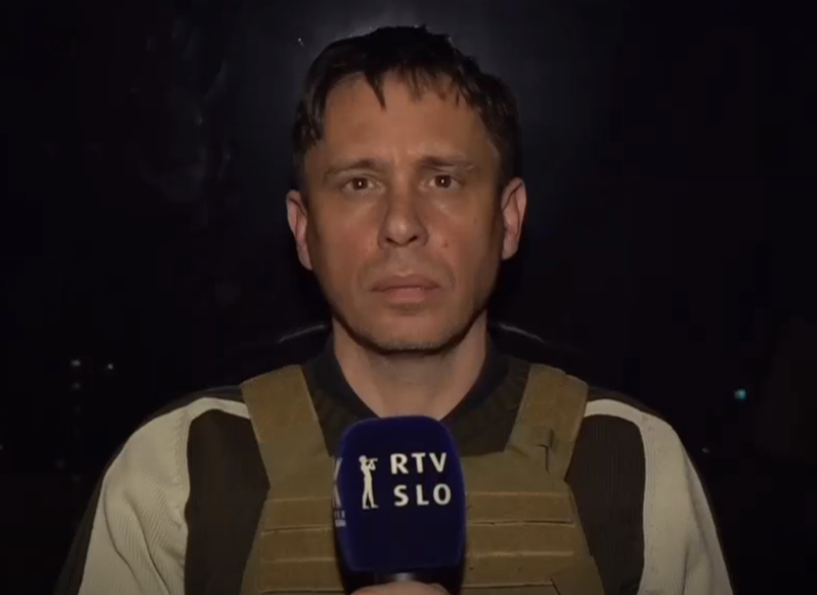Before the New Year, the management of the national media outlet, Radio-Television Slovenia (RTVS), temporarily laid off some of the workers and even banned them from entering the RTV building. Most of them also had their salaries cut significantly, by between five and fourteen pay grades, although RTV Slovenia said in a press release on the 19th of January that “RTV Slovenia is not trying to humiliate or get revenge against the employees of the show Panorama” – employees who were most affected by the measures. But they were lying, as the management’s mistreatment continues to this day and has gotten even worse. They recently took on the experienced journalist Valentin Areh, who explained in a letter how low a blow they had dealt him.
“Today, the members of the management board of Radio-Television Slovenia, Zvezdan Martič, Andrej Trček and the Workers’ Director, Franci Pavšer, sent me a vile and cowardly contract, demanding that I accept a 17-grade pay cut and start working as a junior journalist, while at the same time, I have to give up any lawsuit against RTV,” wrote Valentin Areh, a long-time journalist, in his letter exposing the brutal treatment by the RTV management.
“To whom it may concern, I, Dr Valentin Areh, the former acting Director of Television Slovenia, would like to inform you that the management of RTV Slovenia has sent me a decision – by e-mail, no less – that they no longer have any work for me at the public broadcaster,” Areh wrote in a letter published by investigative journalist Bojan Požar on the social media X. Areh then further explained that he had been temporarily laid off and even banned from entering his workplace, which meant that he was unable to access his personal belongings. “Despite the fact that I have a PhD and more than 33 years of journalistic and editorial experience working for POP TV, TV Slovenia, Associated Press Television News, ZDF, CNN, and other large foreign media houses, the current Director of TV Slovenia, Ksenija Horvat, claims that they no longer have work for me,” he wrote, adding that the job of editor of the shows Dnevnik (Daily News) and Odmevi (Echoes), which he has held for the past 15 years, is now out of his reach. “Polona Fijavž, editor-in-chief of the first news programme, has now happily entrusted this job to journalists with no editorial experience and a high school education,” he explained.
No one has explained the reasons for this decision to Areh, and in addition, certain colleagues even gloated over what happened to him, saying, “Revenge is sweet!” and boasted that they have the Constitutional Court, the courts, the media, the trade unions, and politics on their side.
“Unfortunately, they do not realise that tomorrow, there may be others in power, who will do exactly the same to all those who are carrying out the purges, and those who tacitly agree with them. This is the last nail in the coffin of the current management of RTV,” he warned, stressing that this fate has befallen those who refused to define themselves politically, “according to the principle: if you are not with us, you are against us!”
The silence of those in charge is allowing the management to radically cut back
The escalation of pressure, he said, is intensifying and has even gone so far that the employees of the show Panorama are being subjected to psychological violence, threats and insults. There is no legal basis for all this, he pointed out, adding that he believes that these are violent and flagrant violations of the labour law and legislation against those colleagues who insist on respecting the programme and professional standards.
“And yet, the labour inspectorates remain silent. Despite the violence, intimidation and threats against journalists, the public has not seen the protests of the RTV Workers’ Council, public sector unions, the Slovene Association of Journalists (DNS), the RTV journalists’ unions, the Ministry of Culture, professional associations and NGOs, which have spoken out on a daily basis in the past about what was happening at RTV back then. They have all remained silent,” he wrote, stressing that their silence “has allowed the current management of RTV Slovenia to become the first in the institution’s history to radically cut programming, to severely curtail the culture segments (even though RTV Slovenia was once primarily a cultural institution), to ban its employees from entering TV Slovenia, and to deprive them of their jobs by an illegal decision.”
T. B.


